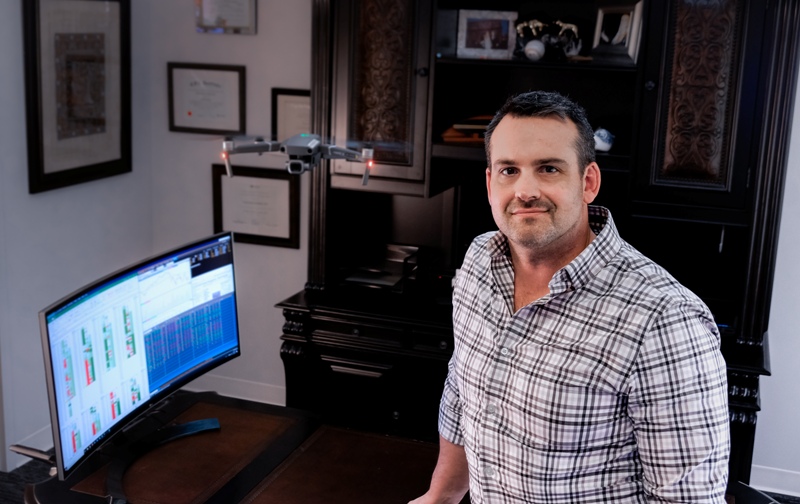
With social distancing measures becoming the new normal, innovators have started to find creative ways to get things done without having to make contact with anyone outside of their living space. One of these pioneers is Scott Roelofs, a Scottsdale local and the owner of RCG Valuation & Monetization.
Roelofs has a professional background that includes 17-plus years of experience in the financial services industry. His company, RCG Valuation & Monetization, utilizes cost segregation studies to help business owners and real estate professionals save money on taxes by identifying their assets, and identifying their costs, then carefully classifying those assets for state and federal tax purposes. The difference in RCG’s strategy? Drones.
RCG is currently the only company in the nation that uses drone and 3D technology to assist with their research. This means that RCG has a unique zero-contact approach to cost segregation, and access to over 3,500 drone pilots who are available to scan properties nationwide, remotely. These drones capture thousands of high-resolution photos and compile them together into a 3D model which can be viewed from anywhere with access to a computer.
Right now, Roelofs says his company is working on tax documents because that's what's most practical from a business perspective, but what his company is executing overall, is more. Roelofs and his team collect data about the locations and turn them into something that people can use to save money in the future -- without any of them ever having to be in the same room.
An example Roelofs shared is how at the moment due to the COVID-19 pandemic lockdown he can't get to his office in-person, but if he needed to, he could use a drone to scan the building and check in whether there’s anything wrong onsite, from the outside.
Roelofs sees a future for this use of drone technology especially after pandemic restrictions have been lifted. He knows that his technology, in combination with artificial intelligence, can be extremely useful for the future of process improvement in a variety of industries from construction to repairs and, of course, cost segregation.
